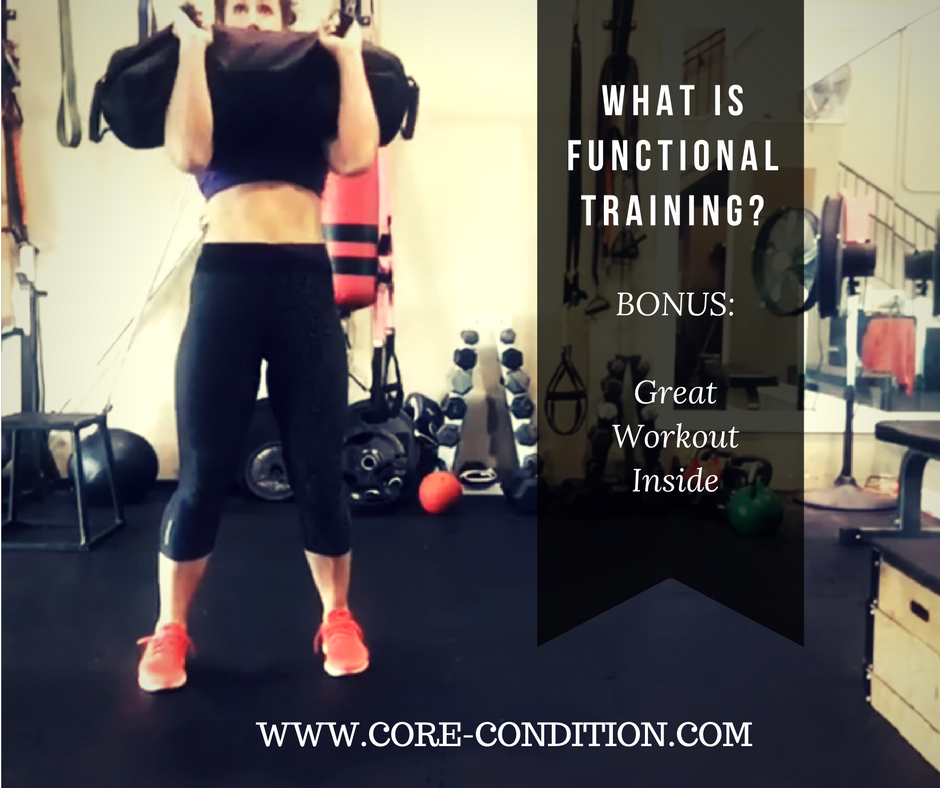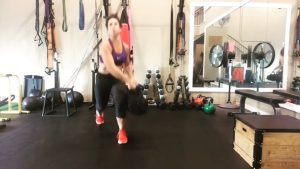- 604-362-9571
- Monday - Sunday
Blog

Functional Training? What it is Plus Great Workout Idea
- by Michelle
- October 31, 2016
Let’s chat about functional training a little bit before we get to the great workout idea at the bottom!
There are so many different theories out there about what training technique is the better than the next. Buzz words are flying all over the internet and I’m sure you’ve heard at least a few. For example core training, functional training, crossfit, hiit, parkour, bodybuilding, kettlebell training, and so many more.
When looking to start a workout routine, I can understand it’s hard to decide what to do and where to start? With so much information (some true and some false) at your fingertips on the internet it’s hard to distinguish what will work. You read one blog that says a certain type of training is the best for fat loss and then read another that states the same thing about a different type of training?
What do you do?
I am not writing this blog to say any type of training is better than the other, but I would like to explain more about a type of training I incorporate into a lot of my own and client’s workouts – functional training.
Why Functional Training?
Well the name pretty much speaks for itself. This type of training is very “functional” in style and incorporates many different aspects into the workout challenging not only strength, but stability too. Functional training can be performed with barbells, dumbbells, sandbags, kettlebells, medicine balls, battle ropes, and resistance bands to name a just a few.
Best explained in basic terms, functional training puts stress on the body in more fundamental movements that mimic the types of strain put on the body in both sports and real life.
Read a blog I wrote in 2011 which goes into more detail about functional training HERE
The Core Conditioning motto is “Train For Life & Be Ready For Anything”, which is basically why we do a lot of functional training out of our facility. I believe that it’s not about “getting ready” for a big event it’s about staying ready so you don’t have to “get ready”. Whether it’s building core stability and strength to carry groceries or vacuum the entire house without hurting your back. Maybe you could be training so you can compete in that obstacle race, play a soccer game with friends, or go on a long hike without feeling exhausted or resulting in injury.
Functional training is a very broad term used to describe a form of exercise used to train the body for the activities performed in daily life.
Functional training can be full body exercises requiring balance, coordination, and a combination of many muscles firing to complete; however, depending on the training goals, functional training could be a pistol squat for a soccer player who needs to develop single leg strength and stability.
Functional training can be altered with many different variables depending on training goals such as:
- How you hold a weight
- the level of stability when holding a weight or the stability of the surface you are standing on
- the speed the exercise is performed at
- the length of time or number of reps an exercise is performed for (including altering break interval times)
- the combination of exercise put together in one circuit or continuous complex
In Conclusion
When looking at choosing a workout regimen, just take a look at your training goals and what might be more beneficial to you. For example, if your goal is to lose fat, feel great, and not injure yourself carrying groceries or lifitng your kids into bed; sitting on a bench doing 3 sets of 10 reps of bicep curls with a 1 minute rest between might not be the most efficient for you. Perhaps incorporating a dynamic exercise like a squat with a bicep curl or a sandbag clean might be a better choice (when done with proper form!)
Check out one of my favourite Sandbag complex’s below:
Why do I love it?
- it’s very challenging!
- it forces my legs to work along side my core stability muscles as well as my upper body
- it also has a cardio factor because it shoots my heart rate through the roof to help with fat loss
- depending on speed and weight of the sandbag it can work for building muscle strength or focus more cardio and stability
Give it a try!
Advanced: Perform 10 reps and rest 1 minute, then repeat for 3-5 more rounds (good luck!!)
Moderate: Perform 5-6 reps and rest 2 minutes, then repeat for 3 rounds
Beginner: Use a lighter sandbag and focus more on stability than speed. Perform 5 reps and rest 1-2 minutes, then repeat for 3 -5 rounds
Interested in more information about how to best train to reach your personal goals? Contact me to ask about ONLINE TRAINING available at a very affordable rate!
Remember everybody is different, what works for someone else might not work for you! It is best to have a program created specific to YOUR BODY, YOUR GOALS, AND YOUR LIFESTYLE!








0Comments